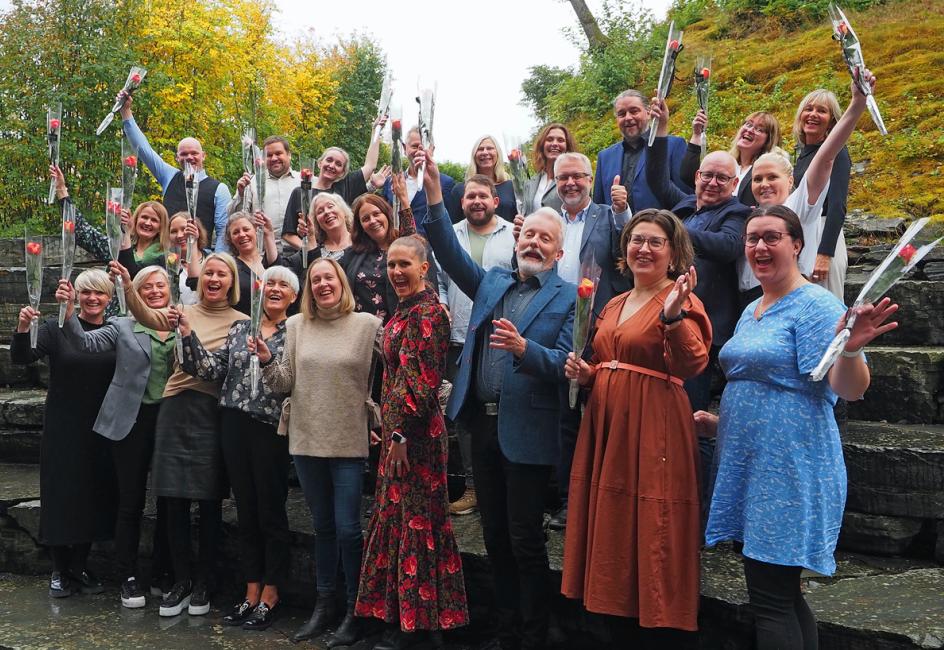
Master in Knowledge Management
Career opportunities
Bachelor’s degree, cand.mag, other degree or educational programme with a minimum scope of 3 years. Education which has been approved as being equivalent to the above mentioned degrees or educational programmes, pursuant to Section 3-5 of the Norwegian Act relating to Universities and University Colleges. In addition, at least 2 years of relevant professional practice is required. In this context, relevant practice is documented competence within the field of management and organisation.
If there are more applicants than capacity dictates, applicants who meet the admission requirements will be ranked according to the following criteria:
Educational credit points:
- 1 additional credit point per 30 credits will be awarded for higher education that exceeds bachelor level. The maximum number of credit points for general education is limited to 8.
- Up to 4 additional credit points will be awarded for documented education within the field of organisational and managerial subjects. After this, 2 credit points for 30 credits and 4 credit points for 60 credits will be awarded.
Vocational experience credit points:
- Documented managerial practice that exceeds admission requirements receives one additional credit point per six months. The maximum number of credit points for managerial experience is limited to 8.
- Other vocational experience receives one additional credit point per year for full-time work experience. The maximum number of credit points for other vocational experience is limited to 6.
Gender quotas:
An aim is to achieve approximately equal gender distribution.
Professional representation:
The composition of the student group should reflect the diversity of working life. Applicants compete within each of the following categories:
- Private sector
- Applicants who own/manage their own enterprise/business
- Healthcare services
- Schools, education and research
- Other public services (administrative managers, police, Norwegian Labour and Welfare Administration etc.)
The ranking rules described above will help ensure that students with as diverse a background of experience as possible are admitted. This will be an important contribution to the work of creating a good and productive learning environment based on vocational diversity.
Geographical affiliation:
The programme of study shall be a national course of study. In order to safeguard this, approximately 1/3 of the places are reserved for applicants outside Trøndelag.
Clarifications:
Admission requirements:
Educational requirements can only be waived when an applicant can document very specialised and relevant vocational experience. Primarily, such vocational experience must include high-level management and/or any position of trust.
Relevant management experience is to be understood in a broad sense. Applicants must submit a detailed description of what they have managed (e.g. projects, people, networks, sole proprietorships, classroom management etc.).
Ranking:
Credit points for education in organisational and managerial subjects:
Credit points will only be given to formal education after completing a bachelor’s degree. Composite educations (continuous educational programmes of a minimum of 5 years such as an MBA, doctor and veterinarian) can automatically receive 4 credit points. The institution assesses which educational programmes can be considered.
Military Academy candidates receive 4 credit points.
Vocational experience credit points:
Documentation of vocational experience must clearly show the scope, duration and a description of tasks/areas of responsibility in order for credit points to be awarded. The institution has the right to reject incomplete documentation. A cv or contract of employment is not considered documentation of vocational experience, but may be attached to the application.
Processing of applications will only take place after the application deadline.
Experience-based master's studies do not qualify directly for admission to doctoral studies.
The Faculty of Social Sciences can offer supplementary individual subjects at Master's degree level which, in combination with your previous education, can satisfy the professional admission requirements for the Ph.D. in sociology. For more information on admission requirements, see https://www.nord.no/studier/phd-i-sosiologi-doktorgrad.
Contact the PhD coordinator, Anneli Maria Watterud (anneli.m.watterud@nord.no), for an individual assessment of your course of study.
A candidate who completes the programme of study will have attained the following overall learning outcomes defined in knowledge, skills and general competence:
Knowledge
The candidate:
- has advanced knowledge of organisation and management, and special insight into the management of knowledge-related work and knowledge processes in organisations
- has in-depth knowledge of recent research, scientific theories and methodologies relevant to the management of knowledge-related work and knowledge processes in organisations
- can apply knowledge to new areas that are relevant to the management of knowledge-related work and knowledge processes in organisations
- can analyse academic issues related to the management of knowledge-related work and knowledge processes based on the subject area’s history, traditions, characteristics and position in society
Skills
The candidate:
- can analyse and relate critically to various sources of information and apply them when structuring and formulating academic reasoning in relation to knowledge, knowledge-related work and knowledge management
- can analyse relevant theories, methodologies and interpretations, and transfer them to practical and theoretical problem solving in the management of knowledge-related work and knowledge processes in organisations
- can independently use methodologies in research and professional development work that are relevant regarding research on the management of knowledge-related work and knowledge processes
- can conduct an independent, defined research or development project in accordance with accepted scientific methodologies and applicable ethical research norms while under supervision
General competence
The candidate:
- can analyse relevant academic and ethical research issues associated with the management of knowledge-related work and knowledge processes
- can apply their knowledge and skills to new areas in order to manage knowledge-related work and knowledge processes
- can convey extensive independent work and master terminology used in the subject area
- can communicate with both specialists and the general public regarding academic issues, analyses and conclusions within the field of knowledge management
- through the application of knowledge and skills, can act as reflected practitioners in the management of knowledge-related work and knowledge processes
- through the management of knowledge-related work and knowledge processes, can contribute to creativity and innovation in organisations
The syllabus’ course descriptions include expected learning outcomes for each course in the programme of study.


